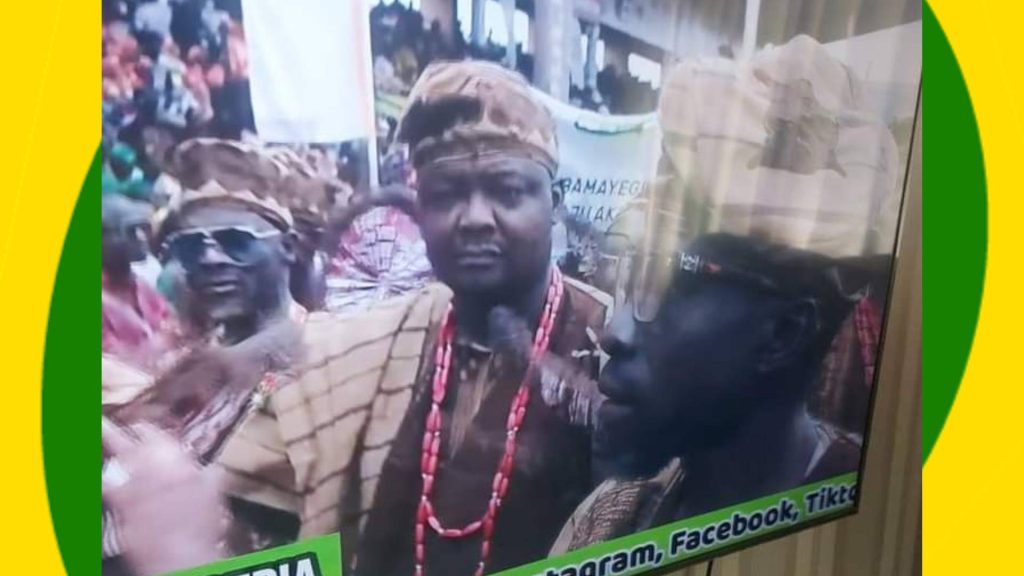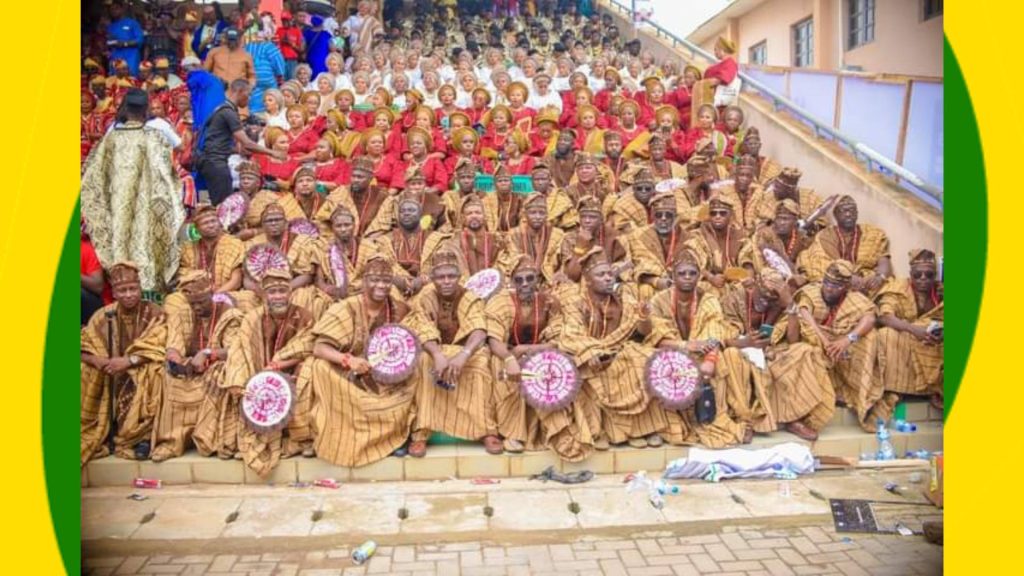Sodiq Quadri, fondly revered as “Omo Alhaja” during his glorious days at his higher institution, was no doubt the epitome of Ojude-Oba 2024, as he was at his height, the best and most vivid during the annual religion festival that usually saw an assemblage of sons and daughters of Ijebuland, including their friends, associates, well-wishers, admirers, and lovers across the world. His commanding position attracted the camera of NTA, Ijebu-ode, and his unassuming gaits during this year’s edition were televised live across its national and international networks.
Omo Alhaja’s appearance in his complete native Aso Ofi (hand-woven attire traditionally known with Yoruba race), motific cap, to-match custom-made shoes, and insignia connotes composure, poise, class, and elegance.
Ojude-Oba represents the epic history of the Rich Ijebu Cultural Festival, which dates back to 1890 and has lasted for over a century, yet is relevant to date with much enthusiasm and high expectations whenever it is approaching.
It is a sort of healthy competition and developmental rivalry, especially among the “Balogun (warlords) families,” where the rites of who comes first in every edition are usually keenly contested with amiable gallantry, enviable pageantry, and adorable customary wits. By wits, it holistically means shows of sanity and intellectual ability, expression of Sound Reasoning Faculty (SRF), and no signs of “End of Thinking Capacity” (ETC) among every participant and contestant during the carnival-like annual event.
The event also provides an enabling ground for a colourful parade of homage to the Awujale by the ‘Regberegbes’ (the Age-Grade Groups), divisions, and ancient families across the Ijebu landscape. The event includes displays of gaited horses and horse riding, gun salutes, and dancing.
For those who might be hearing “Ojude-Oba” for the first time, especially those outside the Yoruba race, it is the 3rd day of Eid Adha, where Muslim faithful and adherents of Islam all over the world endear to slaughter acceptable animals ranging from rams, sheep, cows, and goats. It is the G.O.A.T. (Greatest of All Times) of all the Muslims’ festivals that are being celebrated uniformly across the globe. It is a sacred fulfilment of one of the rites that follows the completion of their annual Ramadan fasting and preludes to ushering in a in a new Islamic calendar year known as “Hijrah.”.
Eid Adha comes precisely two months and ten days after the completion of Ramadan, thereby enabling Muslims to earnestly look forward to this glorious and joyous day by following the righteous footpaths of Prophet Ibrahim and, above all, obeying one of the commandments of their Islamic rites as enshrined in the Noble Quran.
The origin of Ojude-Oba is traced solely to the early Muslims of the ancestral city of Ijebu-ode; hence, it is still famous and respected in this ancient city. Annually, the historical city of Ijebu Ode usually stands still and goes agog as indigenous Ijebu people and other peoples from far and near will throng to the Palace of Awujale so as to pay homage and tributes to the Paramount Ruler of Ijebuland, while Awujale in return “wures” (prays) graciously for them and delivers goodwill messages to be taken home.
Ojude-Oba literarily denotes “The King’s Court,” but connotatively, it means more than that, as it has come to symbolise one of the most sensational and talked-about cultural events in Nigeria, where movers and shakers, timbers, and calibres of the three social strata have come to “show faces,” respectively, and in a responsible manner, to the respectable grand monarch of Ijebuland. It is an emblem of glorification and a combinable melting pot for religion and tradition.
The Ojude-Oba celebration has even gone beyond individuals eminently trying to outclass themselves in sanest manners, as corporate organisations have equally been participating through the discharge of their Corporate Social Responsibility (CSR) as ways of giving back to society and Expanded Producer Responsibility (EPR) by assuming responsibility arising from buying and consuming their products and services. Companies are doing these in the most classical and fashionable manners as well, while many beneficiaries are going back to their respective homes with loads of free gifts and souvenirs for attending every successive edition.
The Ojude-Oba celebration has been aged long enough to assume UNESCO cultural status, as it globally brings tourists together and avails visitors of stunning cultural displays memorable enough to last till the next edition. The Federal Government has also indicated its plans to list the festival as a UNESCO heritage event. The Minister of Culture, Arts, and Creative Economy, Hannatu Musa-Musawa, has stressed that these festivals being celebrated in Nigeria, among which Ojude-Oba is paramount, would diversify the nation’s economy, reduce overdependence on oil, and help reach its mandate of generating $100 billion from tourism in 2030.
The event at its peak showcased a colourful ensemble of Yoruba culture, especially in its sartorial opulence, dance, and fanfare, and is traditionally themed to make more than mere “wining and dining” with that of the 2024 edition tagged ‘Ojude Oba: Unity and Harmony, Our Gift’.











